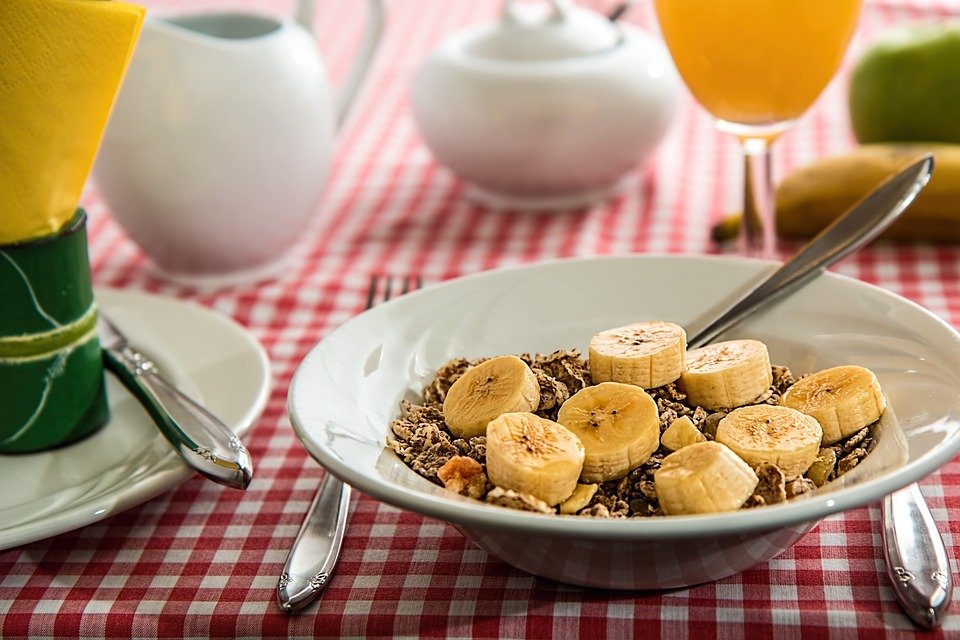Lose Weight with Kombucha: Unlocking the Power of a Fermented Beverage
Introduction
Kombucha, a tangy and fizzy fermented tea, has gained popularity in recent years as a health-promoting beverage. While it has been around for centuries, its potential benefits, including aiding in weight loss, have attracted the attention of many health enthusiasts. In this article, we will explore the science behind kombucha, its composition, and how it may contribute to weight loss. Whether you are already a kombucha fan or someone who is curious about its potential, join us on this journey to discover the secrets of losing weight with kombucha.
What is Kombucha?
Kombucha is a fermented beverage made from tea, sugar, and a symbiotic culture of bacteria and yeast (SCOBY). The SCOBY consumes the sugar and produces various compounds during the fermentation process, resulting in a unique and refreshing beverage. This fizzy drink is often flavored with fruits, herbs, or spices, adding a delightful twist to its taste.
The Composition of Kombucha
Kombucha is an intricate concoction of bioactive compounds that contribute to its potential health benefits. These compounds include organic acids, vitamins, minerals, enzymes, and antioxidants. The organic acids, such as acetic, gluconic, and lactic acids, give kombucha its characteristic tanginess and contribute to its potential weight loss effects.
How Kombucha May Aid in Weight Loss
1. Boosting metabolism: Kombucha contains acetic acid, which has been associated with an increase in metabolism. A higher metabolic rate means your body burns calories more efficiently, potentially leading to weight loss.
2. Suppressing appetite: The organic acids in kombucha can help regulate appetite by affecting certain hormones responsible for hunger control. By keeping your appetite in check, kombucha may aid in reducing calorie intake and promoting weight loss.
3. Supporting gut health: Kombucha is rich in probiotics, which are beneficial bacteria that support a healthy gut microbiome. A balanced gut microbiome has been linked to weight management, as it influences digestion, nutrient absorption, and inflammation, all of which play a role in weight regulation.
4. Providing hydration: Staying hydrated is important for weight loss, as it helps maintain proper bodily functions and can boost metabolism. Kombucha provides hydration while also offering additional health benefits, making it a great alternative to sugary beverages that can hinder weight loss efforts.
5. Increasing energy levels: Kombucha contains B vitamins, which play a crucial role in energy production. By providing a natural energy boost, kombucha may encourage physical activity and support a more active lifestyle, essential for weight loss.
How to Incorporate Kombucha into Your Weight Loss Journey
Now that we understand how kombucha may contribute to weight loss, let’s explore some practical tips for incorporating it into your daily routine:
1. Choose the right kombucha: When selecting kombucha, opt for varieties with minimal added sugars and artificial ingredients. Consider brewing your own kombucha at home to have more control over the brewing process and ingredients used.
2. Enjoy it as a low-calorie beverage: Kombucha is a great alternative to sugary sodas or juices. It is low in calories while providing a satisfying fizzy sensation. Swap out high-calorie beverages with kombucha to reduce overall calorie intake.
3. Use it as a pre-meal appetite suppressant: Drink a small glass of kombucha before meals to help control your appetite. The organic acids in kombucha may help you feel fuller, leading to reduced food intake during meals.
4. Stay consistent: Incorporate kombucha into your daily routine to reap its potential benefits. Remember, like any other dietary change, consistency is key. Make kombucha a part of your healthy lifestyle, along with a balanced diet and regular exercise.
5. Experiment with flavors: Kombucha comes in a variety of flavors, allowing you to discover your preferences. Experimenting with different flavors can make your kombucha journey more enjoyable and help you stay motivated on your weight loss journey.
The Importance of a Balanced Approach
It is essential to remember that although kombucha may contribute to weight loss, it is not a magic solution. To achieve sustainable and healthy weight loss, it is crucial to adopt a balanced approach that includes a nutritious diet, regular physical activity, adequate sleep, stress management, and staying hydrated. Kombucha can be a valuable addition to a holistic weight loss plan, but it should not be relied upon solely.
Conclusion
Kombucha, with its unique composition and potential health benefits, can be a flavorful addition to your weight loss journey. Its ability to boost metabolism, suppress appetite, support gut health, provide hydration, and increase energy levels make it a promising beverage for those aiming to shed extra pounds. Remember to choose kombucha varieties with minimal added sugars, incorporate it into your daily routine, and maintain a balanced approach to achieve long-term weight loss success. Cheers to a healthier you with kombucha!
Frequently Asked Queries Concerning Lose Weight Kombucha
What is Kombucha and how does it help with weight loss?
Kombucha is a fermented tea that has been consumed for centuries due to its numerous health benefits. When it comes to weight loss, Kombucha can be a valuable addition to your diet. It aids in weight loss by boosting metabolism, promoting digestion, and reducing cravings.
The three most important information given in this answer are:
1. Kombucha is a fermented tea with many health benefits.
2. It can boost metabolism and promote digestion, aiding in weight loss.
3. Kombucha can also help reduce cravings, which can prevent overeating.
Does Kombucha have any calories?
Yes, Kombucha does contain calories, but the amount can vary depending on the brand and flavor. On average, a 16-ounce bottle of Kombucha contains approximately 30-60 calories. It is important to check the nutrition label of the specific brand and flavor you choose to get an accurate calorie count.
The three most important information given in this answer are:
1. Kombucha does contain calories, but the amount can vary.
2. On average, a 16-ounce bottle of Kombucha has about 30-60 calories.
3. It is essential to check the nutrition label for accurate calorie information.
Can Kombucha replace a meal for weight loss?
While Kombucha can be a healthy beverage choice, it is not recommended to replace a complete meal for weight loss. Kombucha is low in calories and lacks essential nutrients that a balanced meal provides. It is best to incorporate Kombucha into a well-rounded diet that includes whole foods, lean proteins, and fruits and vegetables.
The three most important information given in this answer are:
1. Kombucha is not suitable as a meal replacement for weight loss.
2. It lacks essential nutrients found in a balanced meal.
3. It is best to consume Kombucha as part of a well-rounded diet.
Are there any risks or side effects associated with drinking Kombucha?
While Kombucha is generally safe for most people, there are a few risks and side effects to be aware of. Some individuals may experience digestive issues such as bloating or gas. Kombucha also contains small amounts of alcohol due to the fermentation process, which can be a concern for those with alcohol sensitivities or those avoiding alcohol altogether. Additionally, homemade Kombucha can carry a risk of contamination if not brewed and stored properly.
The three most important information given in this answer are:
1. Some people may experience digestive issues when consuming Kombucha.
2. Kombucha contains small amounts of alcohol, which can be a concern for some individuals.
3. Homemade Kombucha can be at risk of contamination if not made and stored correctly.
Is Kombucha a magic solution for weight loss?
While Kombucha can be a helpful addition to a weight loss journey, it is not a magic solution for shedding pounds. To effectively lose weight, a combination of factors such as a balanced diet, regular exercise, and a healthy lifestyle are crucial. Kombucha can support weight loss efforts by promoting digestion and reducing cravings, but it should be used in conjunction with other healthy habits.
The three most important information given in this answer are:
1. Kombucha is not a magic solution for weight loss.
2. To lose weight, a balanced diet, exercise, and a healthy lifestyle are essential.
3. Kombucha can support weight loss efforts when combined with other healthy habits.
1. Kombucha is a magic weight loss potion
Contrary to popular belief, kombucha is not a magic weight loss potion that will instantly shed pounds. While kombucha has gained popularity as a health drink, it is important to understand that it alone cannot guarantee weight loss. Weight loss is a complex process that requires a combination of a healthy diet, regular exercise, and lifestyle changes.
2. Kombucha is a meal replacement
Some people mistakenly believe that kombucha can be used as a meal replacement for weight loss. However, kombucha is not a substitute for a balanced meal. It is essential to consume a variety of nutrients from different food groups to maintain good health. While kombucha can be a part of a healthy diet, it should not be relied upon as a meal replacement.
3. All kombucha is low in calories
While kombucha is generally lower in calories compared to sugary drinks like soda, not all kombucha is low in calories. The calorie content of kombucha can vary depending on the brand and flavor. Some kombucha brands may add extra sugar or fruit juice to enhance the taste, which can increase the calorie content. It is important to read the nutrition labels and choose kombucha that fits into your overall calorie intake if you are aiming to lose weight.
4. Drinking more kombucha leads to more weight loss
Another misconception is that drinking more kombucha will lead to more weight loss. While drinking kombucha in moderation can be part of a healthy diet, consuming excessive amounts will not accelerate weight loss. Kombucha, like any other beverage, contains calories, and consuming too many calories can hinder weight loss progress. It is important to maintain a balanced calorie intake and not solely rely on kombucha for weight loss.
5. Kombucha is a substitute for a healthy lifestyle
One common misconception is that drinking kombucha alone is enough to lose weight, without making any other changes to one’s lifestyle. However, weight loss is not solely achieved by consuming a specific food or drink. It requires a holistic approach that includes a balanced diet, regular exercise, stress management, and adequate sleep. Kombucha can be a part of a healthy lifestyle, but it cannot replace the need for other healthy habits.
Lose Weight Kombucha
#Lose #Weight #Kombucha


